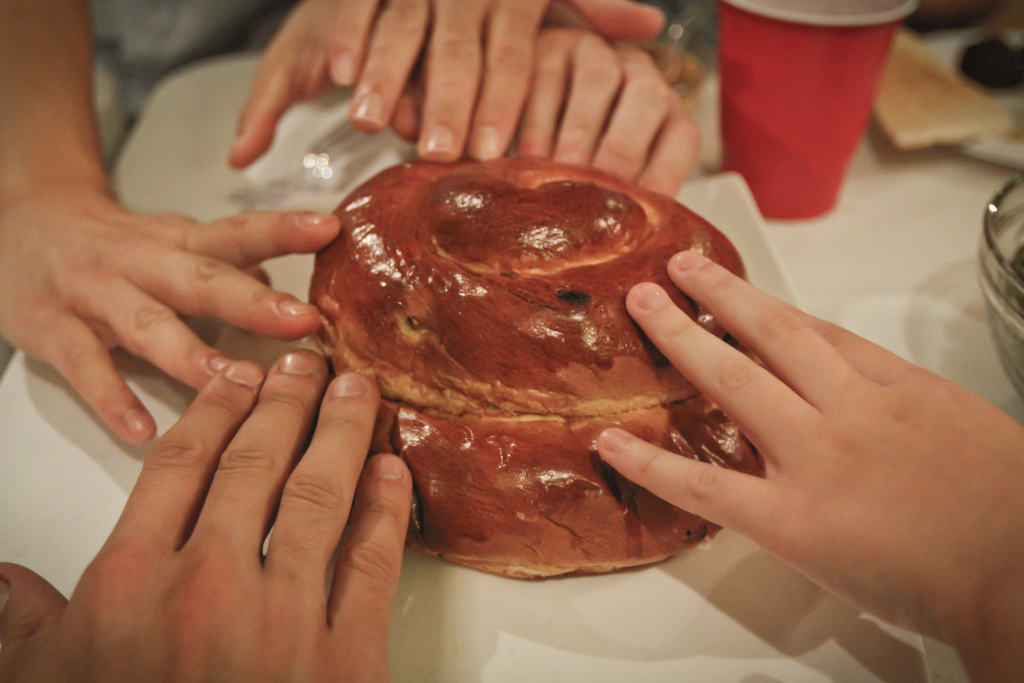Why is tonight different from all other nights? Because if you live in Los Angeles, you could face legal repercussions for celebrating the Jewish High Holy Days with family and friends.
The Los Angeles County Department of Public Health ordered the public not to gather with anyone outside their immediate family to celebrate the Judaism’s holiest celebrations. But after the legal intervention of a religious liberty watchdog, county officials backed down from the most rigid forms of enforcement.
“The following examples of in-person gatherings are not permitted, even if they feel safe,” the department stated in its official Health Officer Order’s Impact on Daily Life FAQs earlier this month. The list specifically included “having dinner with extended family and friends to honor the High Holidays (Rosh Hashanah, Yom Kippur).”
In other words, if you have an extra chair at the table during a Jewish holy day, it had better be empty.
“Failure to comply with this Order is a crime punishable by fine, imprisonment, or both,” the department noted.
No other religious activities were prohibited by name. However, all religious bodies in the state of California remain under tight regulation, including a ban on all indoor worship services.
The threat to police religious family dinners drew a swift response from the Texas-based First Liberty Institute.
“For millennia, the Jewish people have annually shared these meals in community, gathering by family group to break bread and consider the blessings of God, the forgiveness of their sins, and their own mortality,” wrote senior counsel Stephanie N. Taub in a letter to county officials. “Even during times of intense persecution of the Jewish people – including during the Spanish Inquisition, the Holocaust, and following the communist revolution in the former Soviet Union – families would gather, often in secret, to practice their religion.”
The department putatively bases its prohibition on concerns about spreading COVID-19. However, Taub noted that by allowing a Black Lives Matter protest in Hollywood that drew a reported 100,000 people, “the county has waived any argument that it must prohibit small gatherings for the most holy days of the Jewish calendar.”
Taub demanded the county “immediately make it clear to the public that it will not dispatch Los Angeles County Sheriff’s deputies to the homes of Jewish families gathered for religious meals during the High Holidays inside someone’s home.”
Public health officials subsequently changed the explicit reference to Jewish – and only Jewish – holidays to a more general-sounding policy against “having a meal with extended family and friends for a religious or cultural holiday.”
Then, just hours before Jews around the world would begin their celebration of the Jewish New Year, the county seemed to relent.
First Liberty “asked whether Los Angeles County will ‘dispatch Los Angeles County Sheriff’s deputies to the homes of Jewish families gathered for religious meals during the High Holidays inside someone’s homes,’” wrote Los Angeles County Counsel Mary Wickham on September 17. “The answer to that question is no.”
The letter, which was sent via e-mail, does not indicate whether the county will impose any additional punishment on those caught in the act of breaking challah.
Rosh Hashanah and Yom Kippur are the holiest days of the Jewish faith. And food and human contact are integral parts of their celebration, experts say.
Jewish holidays invariably include food “and being with people. Judaism has never been a monastic religion,” said Nora Rubel, a religion professor at the University of Rochester. For “the major important prayers” in any synagogue service, “you have to have 10 people.”
Furthermore, dinners to break the traditional fast associated with these Days of Awe mark an important cultural event even for secular Jewish people. Niki Russ Federman, whose appetizing shop will sell more than 8,000 pounds of smoked fish during this season, calls holy day dinners “the great equalizer for Jews. Whether you’re very observant or not, people come together around” the family meals.
While everyone should take all reasonable means to prevent the spread of the coronavirus, the specter of using state force to punish those who gather with “extended family” to celebrate the most significant events of their faith should concern people of every religious tradition – and no religion. The state of California continues to show its anti-religious bias through the unequal application of the law to target people of faith or, in this case, people of one specific faith.
Those who cherish the unalienable rights guaranteed by the U.S. Constitution should hope that L.A. County officials make their own the words George Washington wrote to the Hebrew congregation in Newport, Rhode Island: “It is now no more that toleration is spoken of, as if it was by the indulgence of one class of people, that another enjoyed the exercise of their inherent natural rights,” the sitting president reassured them. “For happily the Government of the United States … gives to bigotry no sanction, to persecution no assistance.”
And the department’s leaders may wish to review what happened to other rulers who refused to let the Jewish people celebrate their holy days (Exodus 7-11).
Further reading and resources:
A Jewish perspective on justice, for Rosh Hashanah
Judaism, Law & the Free Market: An Analysis by Joseph Isaac Lifshitz
Judaism, Markets, and Capitalism: Separating Myth from Reality by Corinne Sauer and Robert M. Sauer
(Photo credit: Moishehouse. CC BY-SA 3.0.)

